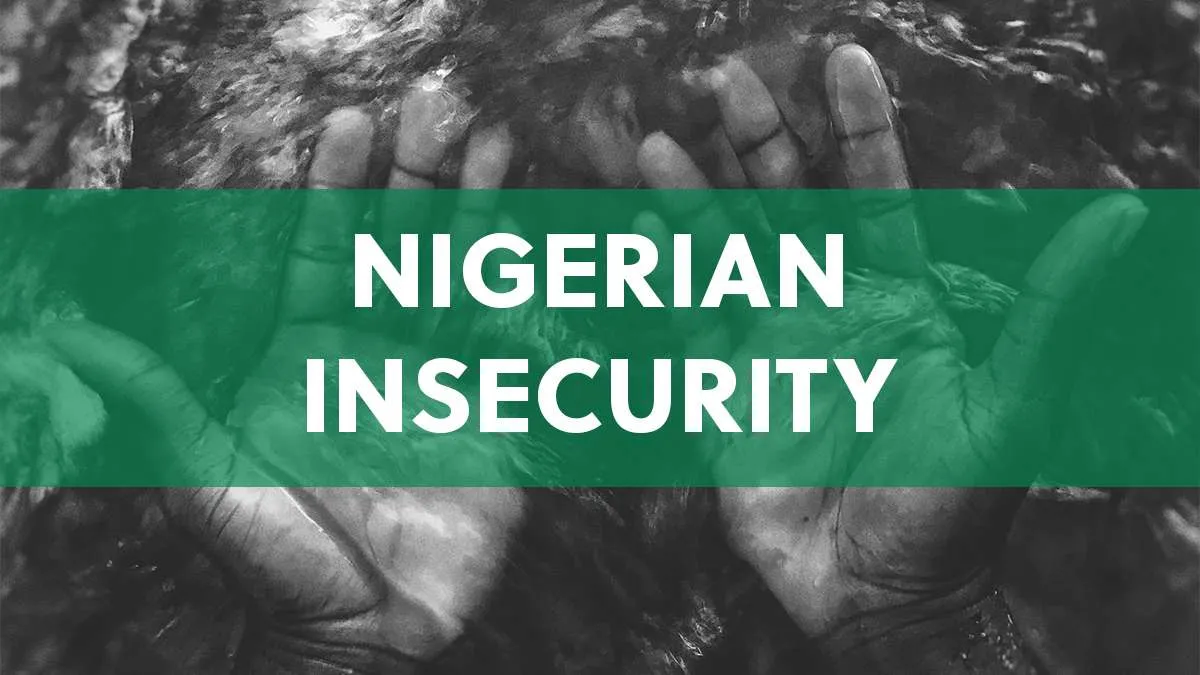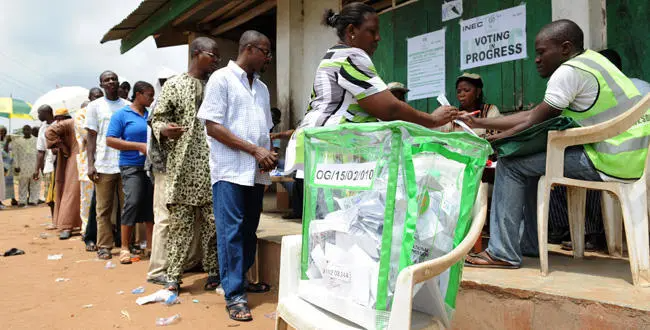
Corruption and corrupt enrichment occupy prominent positions in the psyche of every Nigerian. This is because corruption is part of the culture of every Nigerian. Which is why the ingredients of the doom of every development project are there daily for all to see. For every Nigerian, what is in it for me is the rallying cry. In a nation without values, without ideology, a people to whom hypocrisy is a religion, corruption has become the new normal.
A cartoon once showed a clergyman reaching into the folds of his robe for money in response to a veiled threat in the greeting of policemen at a checkpoint -Your boys are hungry sir. On the Corruption Perception Index, Nigeria ranks 146th out of 180 countries-meaning Nigeria ranks 34th among the most corrupt countries of the world.
In 2019, about half of all who used public services paid bribes to someone in order to access those services. Corruption is so rampart that books have been written and doctorates have been awarded on the subject by universities. In 2018, a fellow of the Carnegie Endowment for International Peace, Matthew Page, wrote a monograph entitled: A New taxonomy for Corruption in Nigeria. In the paper he attempted to categorize Nigeria’s corruption as going beyond the general development in the World Bank’s “Helping Countries Combat Corruption.” Page breaks down Nigerian Corruption into two dimensions, Where it happens, and How it Happens. In its ‘Where’ Page takes Nigeria sector by sector, detailing types of corruption practices familiar on a day to day basis. In the ‘How’, he mentions tactics, techniques and the behavior by which corruption thrives in Nigeria.
Matthew Page spared no sector, in the Press 78 percent of journalists in one year admitted to collecting brown envelopes. Other sectors highlighted are the judiciary, where election mandates are awarded by the courts, the power sector, the security sector, education and health. In hospitals you have to grease the palm of officials in order to gain an hospital bed for your patient. Otherwise, your ward could be left unattended to, with death being the consequence. Even organs of the Humanitarian sector are not exempted, with internally Displaced Persons having to pay in kind in order to get food; with many women refugees becoming pregnant thereafter. In the ‘How’ the author’s taxonomy identifies bribery, extortion, auto-corruption, which includes, salaries and pensions fraud, along with the one much talked about lately- re-looting.
Contract fraud, a malfeasance which involves government contracts. This is identified as the most common and most lucrative form of corruption in Nigeria. It includes staples such as unnecessary contracts procurements, unqualified or untrustworthy contractors which mooted Failed Contracts Tribunals in the Abacha era. This fomented manipulation, conflict of interest non performing contracts. Contract fraud is the big elephant of Nigerian looting today. A contract is awarded to a fake company, mobilization paid but the bidding is never executed. And the contract price is paid, all remaining only on paper.
Yet, the commissioner, the governor, the minister and the president echo the refrain: war on corruption with unusual insincerity. Why then the outcry of war on corruption. And indeed, the contractors, the governors and ministers belong to churches and mosques. An example of a cesspool of corruption uncovered recently is the Niger Delta development Commission (NDDC). It involved legislators accepting contracts but never executing them. Moreover, revelations from the investigations prompted President Buhari to express regret that some appointees, both in his administration and those of his predecessors have abused the trust reposed on them. Such comment from the leader of the nation indicates the level of the rot in the system.
Also, audit queries from the Auditor-general circulated by the Socio-Economic Rights and Accountability Project (SERAP) revealed the true situation of things. The NDDC which is so rich that it can transform the Niger Delta to a Dubai if its works were farmed out to international management organizations; awarded contracts to thousands only for the contractors to disappear into thin air, though in reality they live in the neighborhood. Another Nigerian agency of government paid N28 million for the production of 300 copies of a procurement manual that was available free on the internet.
Though the Procurement Act of 2007 is of international standard till today, friends of an incoming governor do become billionaires within weeks of his excellency’s assumption of office as governor.
Thus, the solution isn’t in the law, the problem is leadership insincerity since Independence. You cannot give what you don’t have. A bad people cannot get good government. However, the solution, if one can be found, lies in building strong institutions and structures. Let the best brains in the land, the Academic Staff Union of Universities devise and implement and monitor hands on due process policy at every level of public life. In addition it should enthrone a strictly disciplined, no exemption enforcement of the Treasury Single Account instrument.
Such a process is the routine practised in internal procurements in the international oil industries and international organizations such as the UNO, the World Bank and the International Monetary Fund. The system cannot be breached from the chief executive to the director of finance. In such institutions, punishment for infractions is swift. By the same token punishment for any red flags in Nigeria must be swift and severe from the minister to the messenger, without any sacred cows. Which is why we’re waiting for the outcome of the Justice Ayo Salami Panel investigating the suspended Acting Chairman of the Economic and Financial Crimes Commission.
Whichever way it goes, the fact remains corruption cannot coexist with economic prosperity and national development. Time has come for us to stop the wanton looting of the public treasury in Nigeria. We therefore condemn the brazen looting of our commonwealth by the political class. It is presently breaking Nigeria and might eventually destroy the country. Buhari must show commitment to his avowed crusade against corruption by rededicating himself to transparency in high places and by abstaining from nepotism.






